Kraken Review 2023 - Features, Fees and Top Alternatives

As the crypto world continues to evolve, it's crucial for investors and enthusiasts to stay updated on the best platforms available. In this detailed review post, we'll delve into an in-depth review of one of the leading crypto exchanges, Kraken, in 2023.
By the end of this post, you'll have a comprehensive understanding of Kraken's features, fees, and possible alternatives, enabling you to make informed decisions.
Kraken Overview
Kraken is one of the veteran names in the cryptocurrency exchange space, having been launched way back in 2011. Founded by Jesse Powell, this U.S.-based exchange has made a name for itself by focusing on high security, regulatory compliance, and a wide range of cryptocurrency assets.
Over the years, it has built a strong reputation for reliability and integrity, attracting millions of users globally. In today's fast-paced crypto market, Kraken continues to evolve, offering a blend of old-school trustworthiness and cutting-edge features.
Whether you're a casual investor or a seasoned trader, Kraken's platform aims to cater to your needs with its extensive services, from basic spot trading to complex futures contracts.
Key Features of Kraken
Robust Security - Kraken invests heavily in state-of-the-art security measures, making it one of the safest exchanges. It employs measures like two-factor authentication (2FA), cold storage, and encrypted data storage.
Broad Cryptocurrency Selection - In 2023, Kraken supports over 200+ cryptocurrencies, from major players like Bitcoin and Ethereum to emerging gems. This wide variety offers versatility for investors.
User-friendly Interface - For beginners and professionals alike, Kraken's platform is intuitive and easy to navigate. It also offers a mobile application for trading on-the-go.
Advanced Trading Options - For more seasoned traders, Kraken offers features like futures trading, margin trading, and over-the-counter (OTC) options.
Fee Structure on Kraken
Trading Fees - Kraken operates on a maker-taker model. The fee varies depending on the volume, starting at 0.16% for makers and 0.26% for takers. As your monthly trading volume increases, these fees decrease.

Deposit and Withdrawal Fees - While deposit fees are minimal or non-existent for most cryptocurrencies, withdrawal fees depend on the specific coin and network congestion.
Margin Trading Fees - For those leveraging Kraken's margin trading, expect a fee that varies depending on the cryptocurrency pair being traded.
How to Create Account in Kraken?
Opening an account with Kraken is a straightforward process, designed to ensure both ease of use and the utmost security for its users. Follow these step-by-step guidelines to get started:
1. Visit the Official Website - Head over to Kraken's official website. On the homepage, click on the "Create Account" button, typically located in the top right corner.
2. Enter Basic Information - You'll be prompted to enter your email address, create a username, and set a strong, unique password. Remember, a robust password often combines letters (both upper and lowercase), numbers, and special symbols.
3. Verify Email - After providing your details, Kraken will send a confirmation email to the address you provided. Click on the verification link in the email to confirm your account's creation.
4. Set Up Two-Factor Authentication (2FA) - For enhanced security, Kraken will prompt you to set up 2FA. This is a critical step as it provides an additional layer of protection for your account. You can use apps like Google Authenticator or Authy for this purpose.
5. Complete KYC Verification - Before you can begin trading, Kraken requires users to complete a Know Your Customer (KYC) verification.
This step involves providing personal details and uploading identification documents, such as a passport or driver's license. The verification process helps ensure the platform's safety and compliance with regulatory standards.
6. Funding Your Account - Once verified, navigate to the 'Funding' tab in your account. Here, you can choose your preferred method to deposit funds, whether in fiat currency or cryptocurrencies.
7. Ready to Trade - With your account funded, you're all set to start exploring and trading on Kraken's extensive platform.
Remember, while the sign-up process is designed to be user-friendly, always ensure you’re using a secure connection and a trusted device when setting up your account, given the sensitive nature of the information involved.
Customer Support and Education
One of Kraken's most commendable aspects is its dedication to customer education. Their resource library contains a multitude of guides, video tutorials, and webinars. In case of concerns, their customer support, available 24/7, is responsive and effective.
Pros and Cons of Kraken
Like all platforms, Kraken comes with its set of strengths and weaknesses. Recognizing them can help users make an informed decision on whether it aligns with their trading and investment needs.
Pros
1. Robust Security - One of Kraken’s foremost advantages is its strong emphasis on security. Features like cold storage for funds, encrypted data, and the option of two-factor authentication make it a reliable platform.
2. Wide Cryptocurrency Selection - Kraken boasts an extensive list of supported cryptocurrencies. From mainstream coins like Bitcoin and Ethereum to emerging tokens, there's a diverse range for investors.
3. User-Friendly Interface - Whether you're a novice or a pro, Kraken’s intuitive design ensures a smooth trading experience. Their platform, including the mobile app, is designed for efficiency and ease.
4. Regulatory Compliance - As one of the few exchanges that prioritize regulatory measures, Kraken ensures it operates within legal boundaries, enhancing trust among its users.
5. Educative Resources - Kraken doesn't just offer a trading platform; they educate. With a vast collection of articles, tutorials, and webinars, users can stay informed and sharpen their trading skills.
Cons
1. Instant Buy Fees - Kraken's instant buy option comes with significant fees. Purchases for stablecoins begin at 0.9% while other cryptocurrencies stand at 1.5%.
If using a debit or credit card, an additional 3.75% fee is charged, and 0.5% for ACH transfers. For fewer fees, consider depositing cash and waiting for clearance.
2. Geographical Restrictions - Kraken is currently unavailable for residents of New York and Washington state due to high regulatory compliance costs. This restriction isn't exclusive to Kraken; exchanges like Binance.US and Crypto.com have similar limitations.
3. Platform and App Limitations - While Kraken's platform and app cover basic functionalities efficiently, they might fall short for those seeking advanced features.
While you can monitor cryptocurrency prices and set alerts, advanced traders might miss comprehensive charting tools and research capabilities.
Is Kraken Right for You?
Deciding on Kraken hinges on your trading needs and priorities. Consider factors like fees, especially for instant buys which are higher on Kraken.
If you're based in New York or Washington state, Kraken's services are unavailable due to regional restrictions. While beginners might find Kraken comprehensive, seasoned traders could miss certain advanced features.
Nonetheless, if security and educational resources rank high on your list, Kraken's robust safety measures and learning tools could make it an ideal choice. Always align the platform's offerings with your unique requirements before diving in.
Top Alternatives to Kraken
While Kraken offers an impressive suite of features, it's always beneficial to consider alternatives based on individual needs.
Coinbase - A friendly interface and strong security protocols make Coinbase an excellent choice for beginners. It offers over 210 cryptocurrencies and is known for its ease of use.
Binance - With an extensive range of supported coins and low fees, Binance remains a top competitor. It's ideal for those seeking diverse trading options.
Gemini - Prioritizing regulatory compliance and security, Gemini is a platform for those who place safety above all else.
Also Read - eToro Review
Frequently Asked Questions
Q1. What is the minimum deposit amount on Kraken?
While Kraken doesn't have a strict minimum deposit for cryptocurrencies(ACH method minimum $1), there might be minimum limits for fiat deposits, which vary based on your funding method and currency.
Q2. How does Kraken handle forked coins?
Kraken typically supports major forks, crediting users with the forked coins based on their existing holdings. However, always check Kraken's official announcements for specifics on individual forks.
Q3. Can I use Kraken for staking?
Yes, Kraken offers staking services with the Kraken Pro app for certain cryptocurrencies except ETH, allowing users to earn rewards by simply holding their coins on the platform.
Q4. How does Kraken ensure the safety of user funds?
A significant portion of Kraken's funds are stored offline in cold storage. Additionally, they use encrypted databases and offer two-factor authentication for user accounts.
Q5. Are there withdrawal limits on Kraken?
Yes, withdrawal limits on Kraken depend on the user's verification level. The more verified and compliant you are, the higher your withdrawal limit.
Q6. Is Kraken available internationally?
Kraken is accessible in many countries worldwide, with a few exceptions. Always verify availability based on your specific location on their website.
Conclusion
Choosing a crypto exchange is a significant decision, influencing the ease, safety, and success of your trading ventures. Kraken, with its extensive features, remains a top contender in 2023. However, based on specific requirements, alternatives like Coinbase, Binance, Gemini, or Bitfinex might be more suitable.
Before diving in, always ensure to conduct personal research and consult trusted resources to remain updated. Remember, the crypto landscape is dynamic, and the best decisions are informed ones.
Disclaimer
The information provided on this website does not constitute investment advice, financial advice, trading advice, or any other sort of advice and you should not treat any of the website's content as such.
Token Metrics does not recommend that any cryptocurrency should be bought, sold, or held by you. Do conduct your own due diligence and consult your financial advisor before making any investment decisions.
Create Your Free Token Metrics Account

.png)




%201.svg)
%201.svg)


%201.svg)



.png)

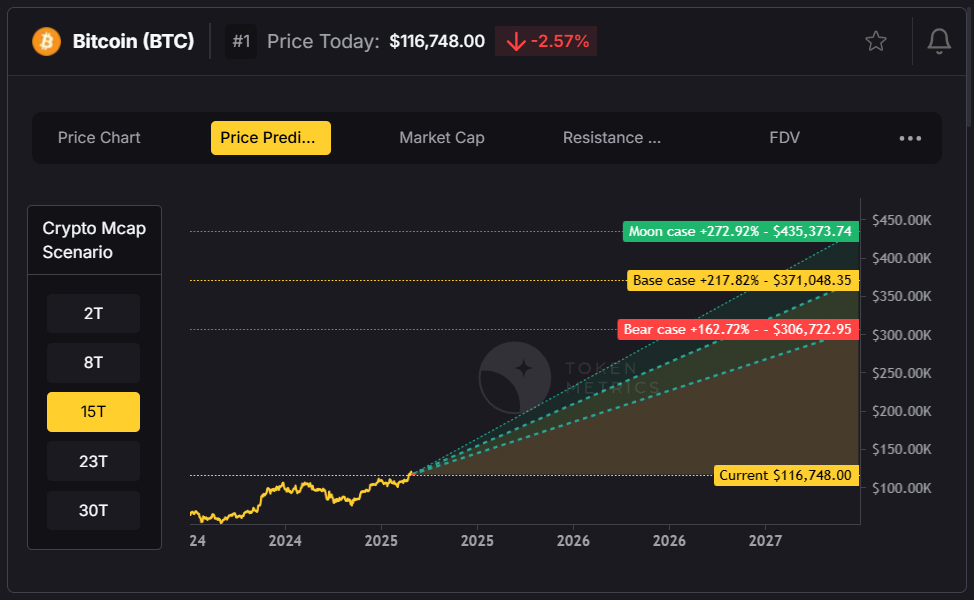


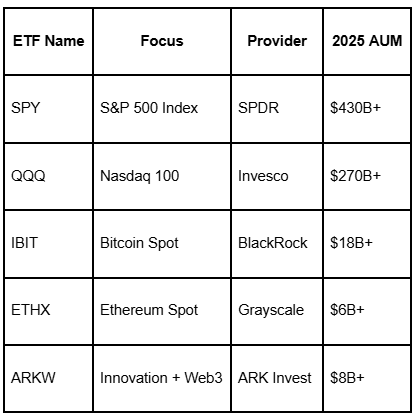
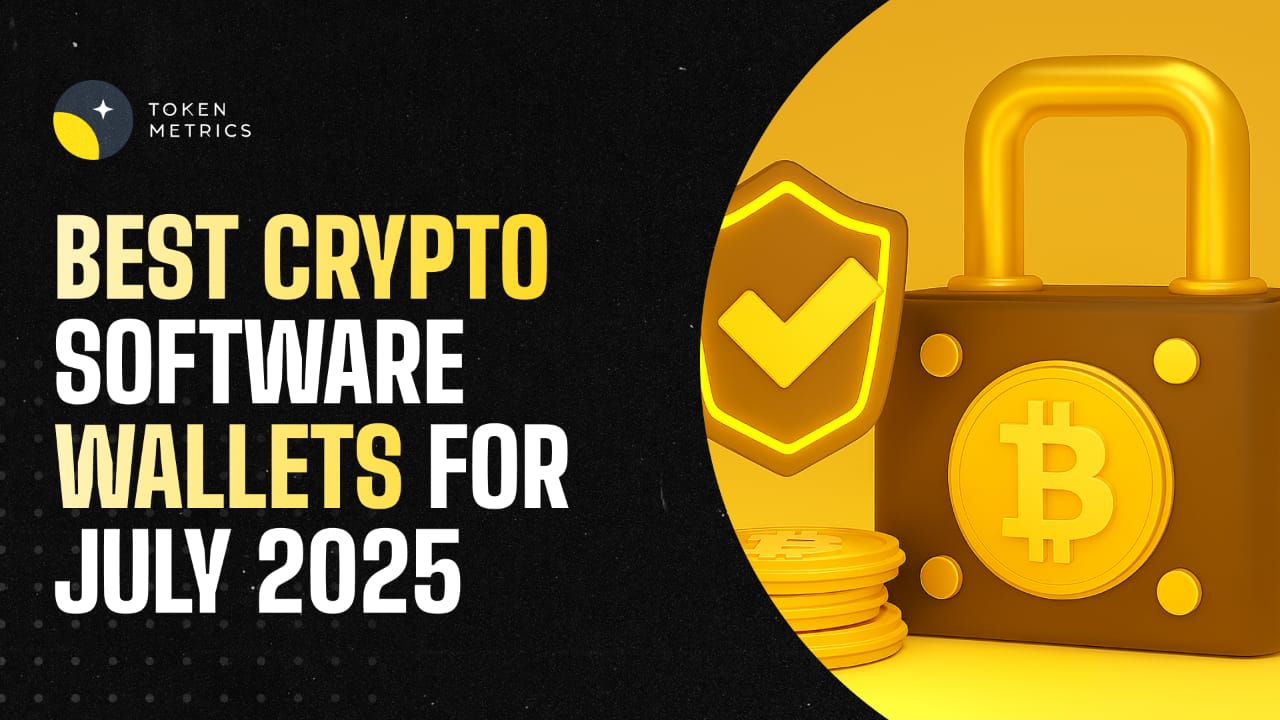



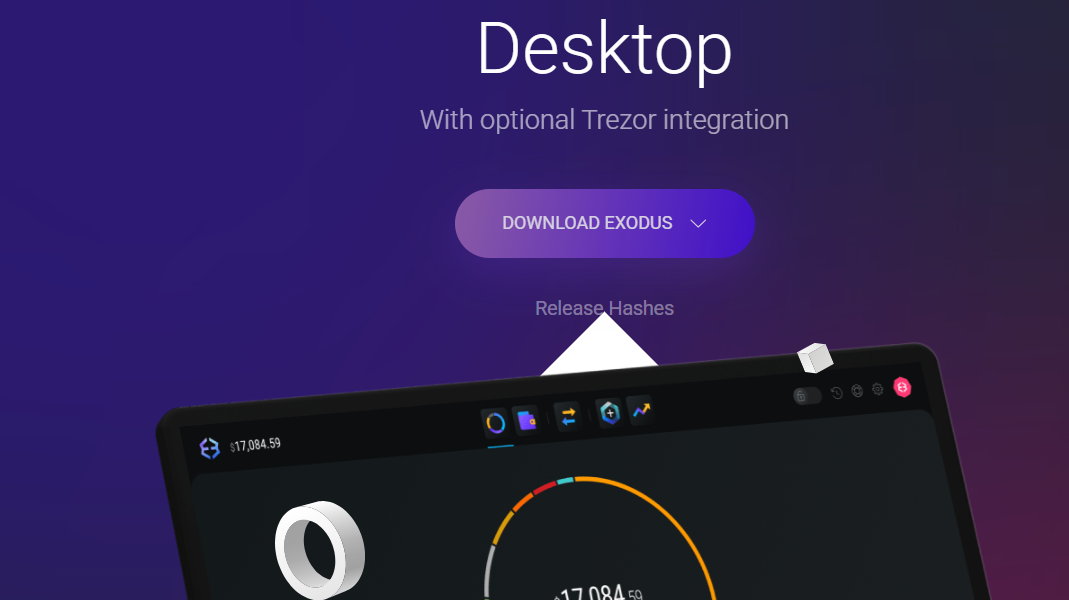
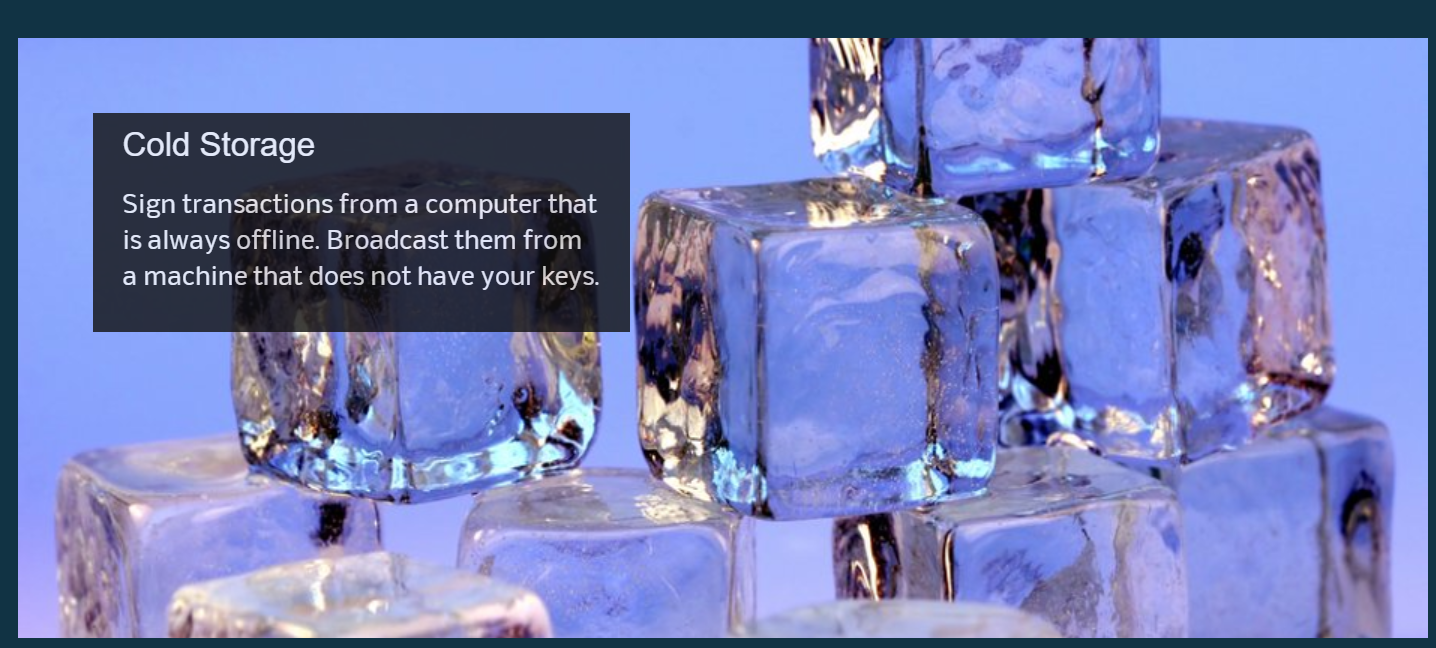


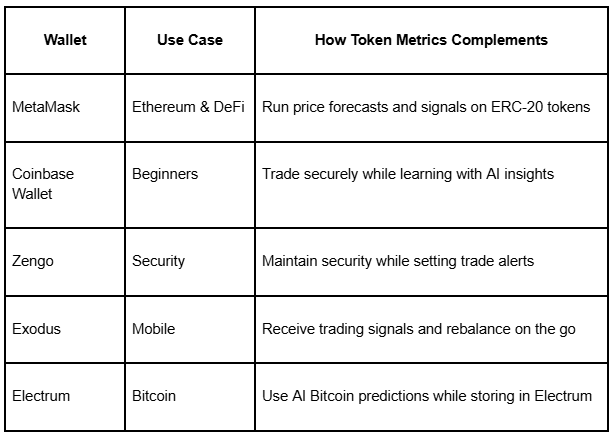
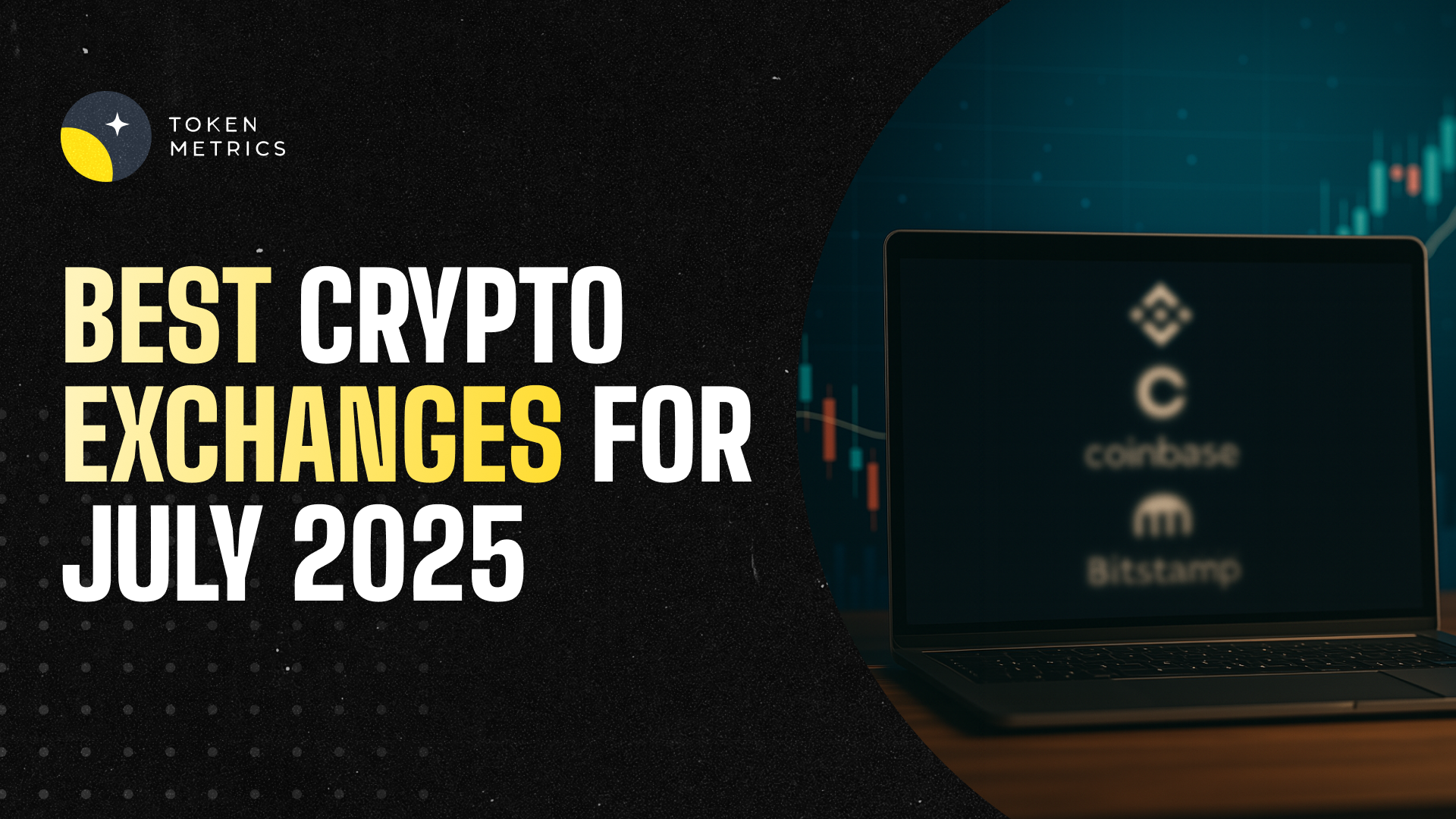
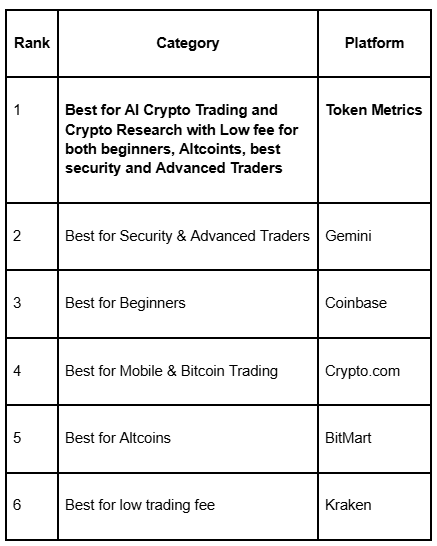



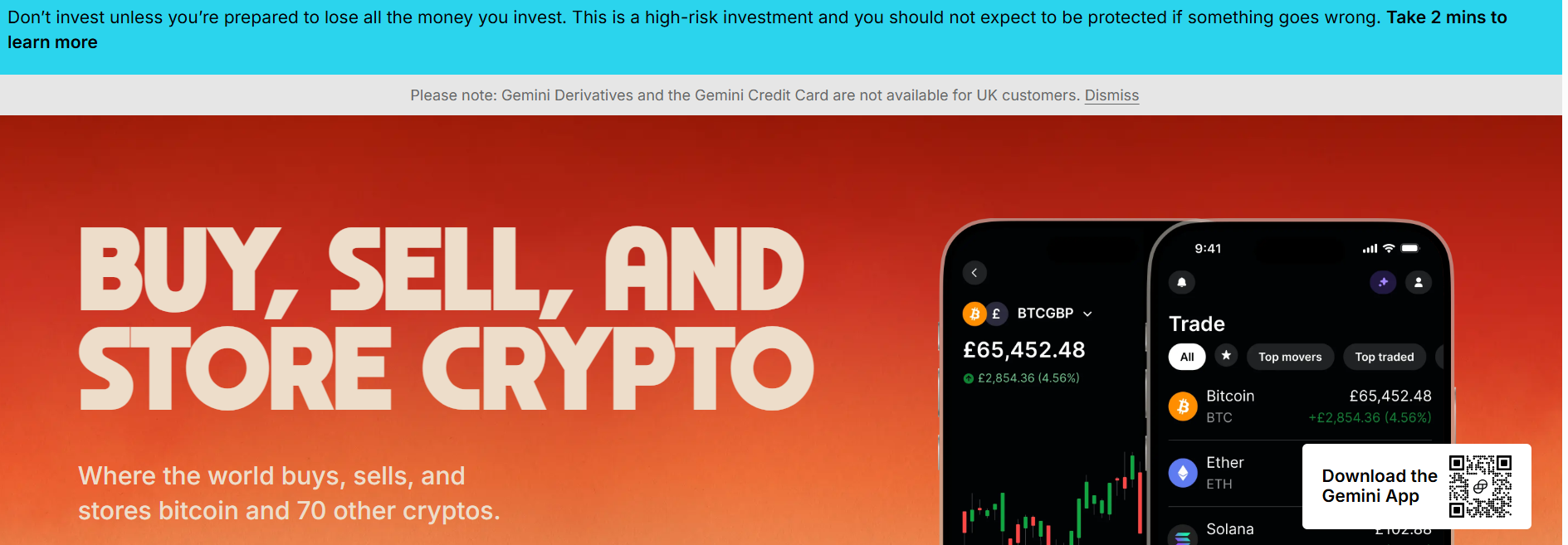
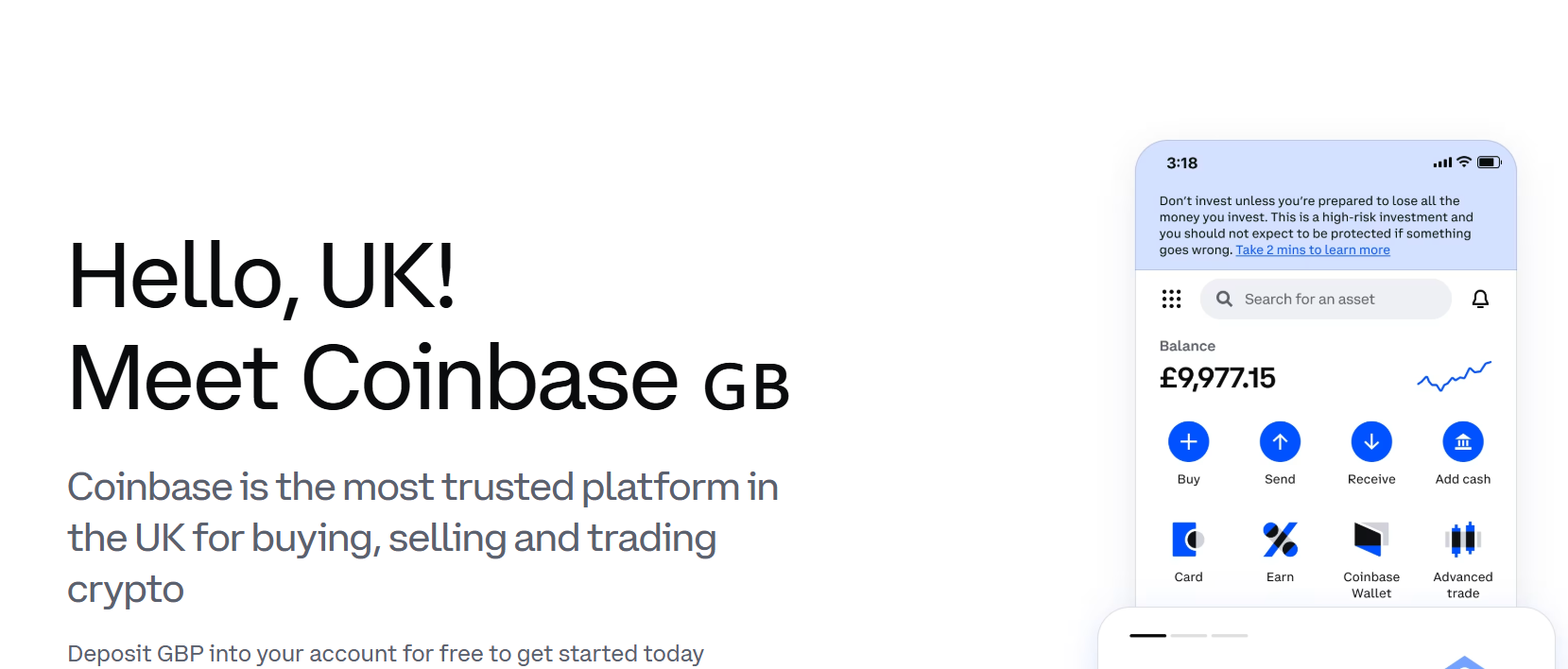
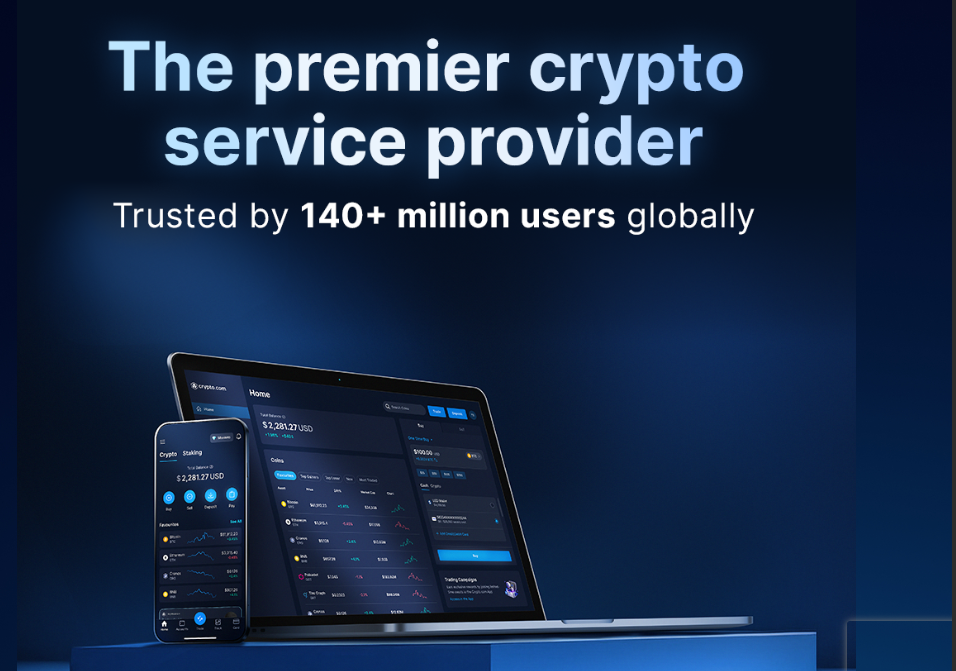
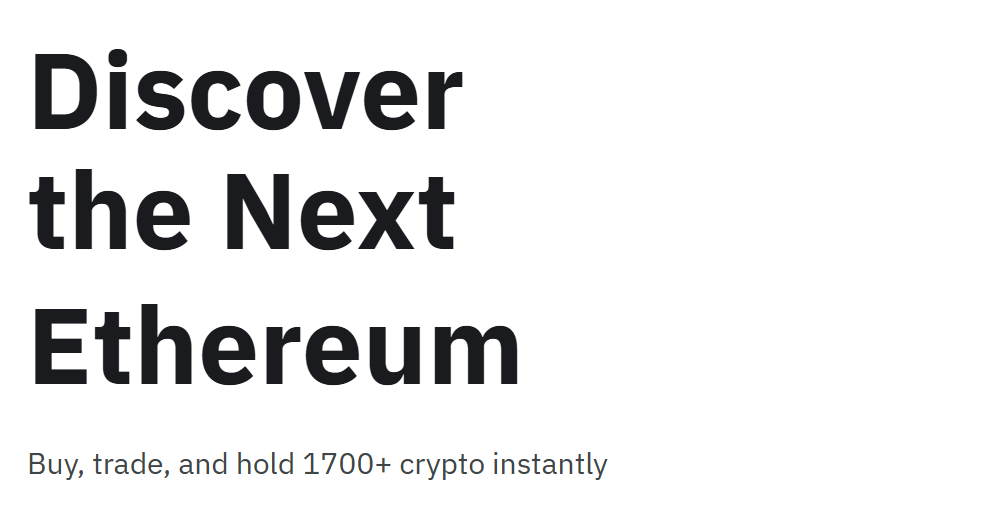
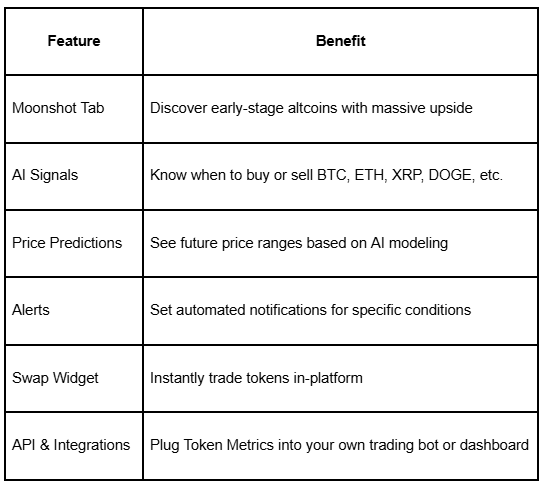




.svg)




.png)